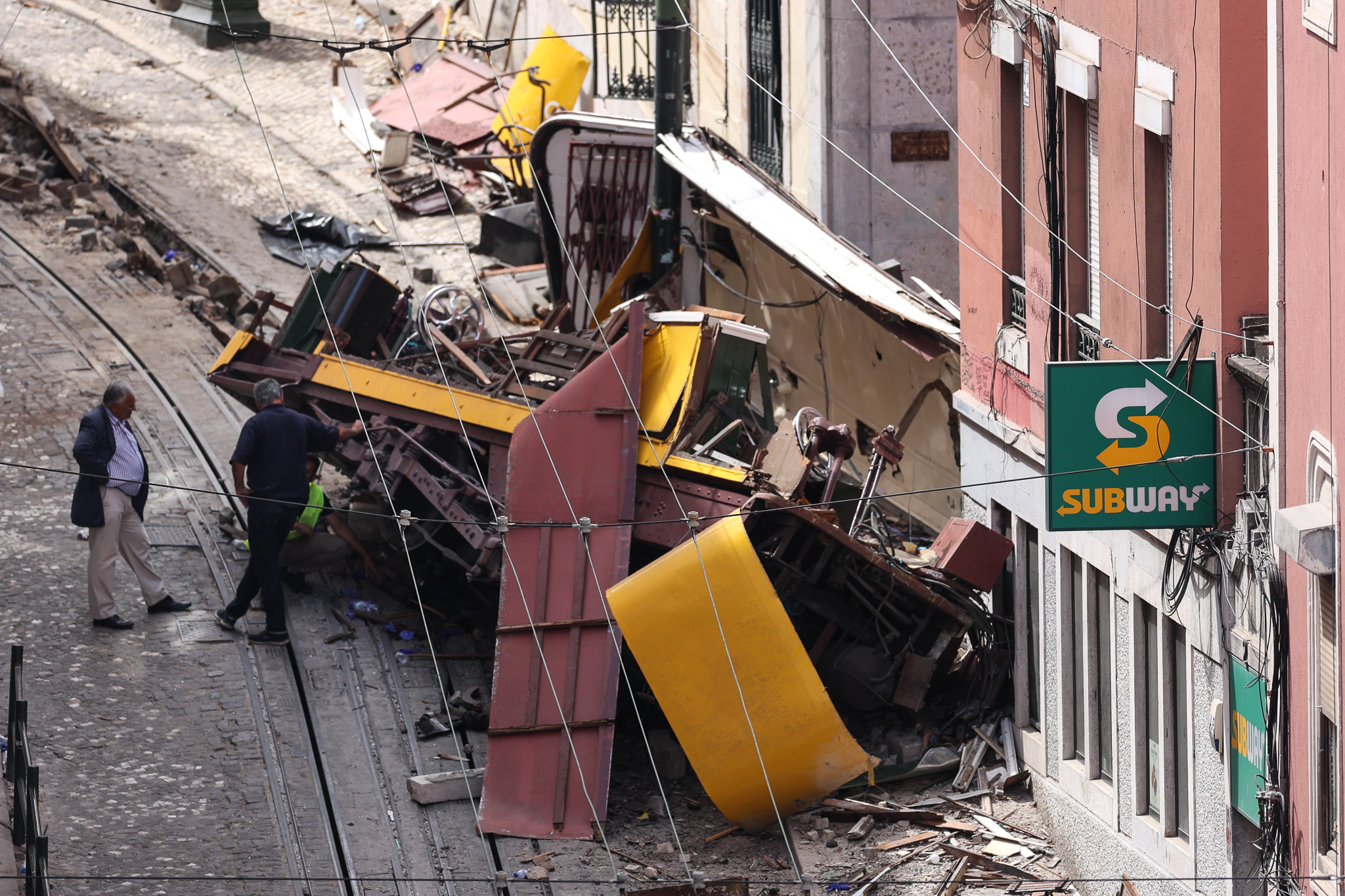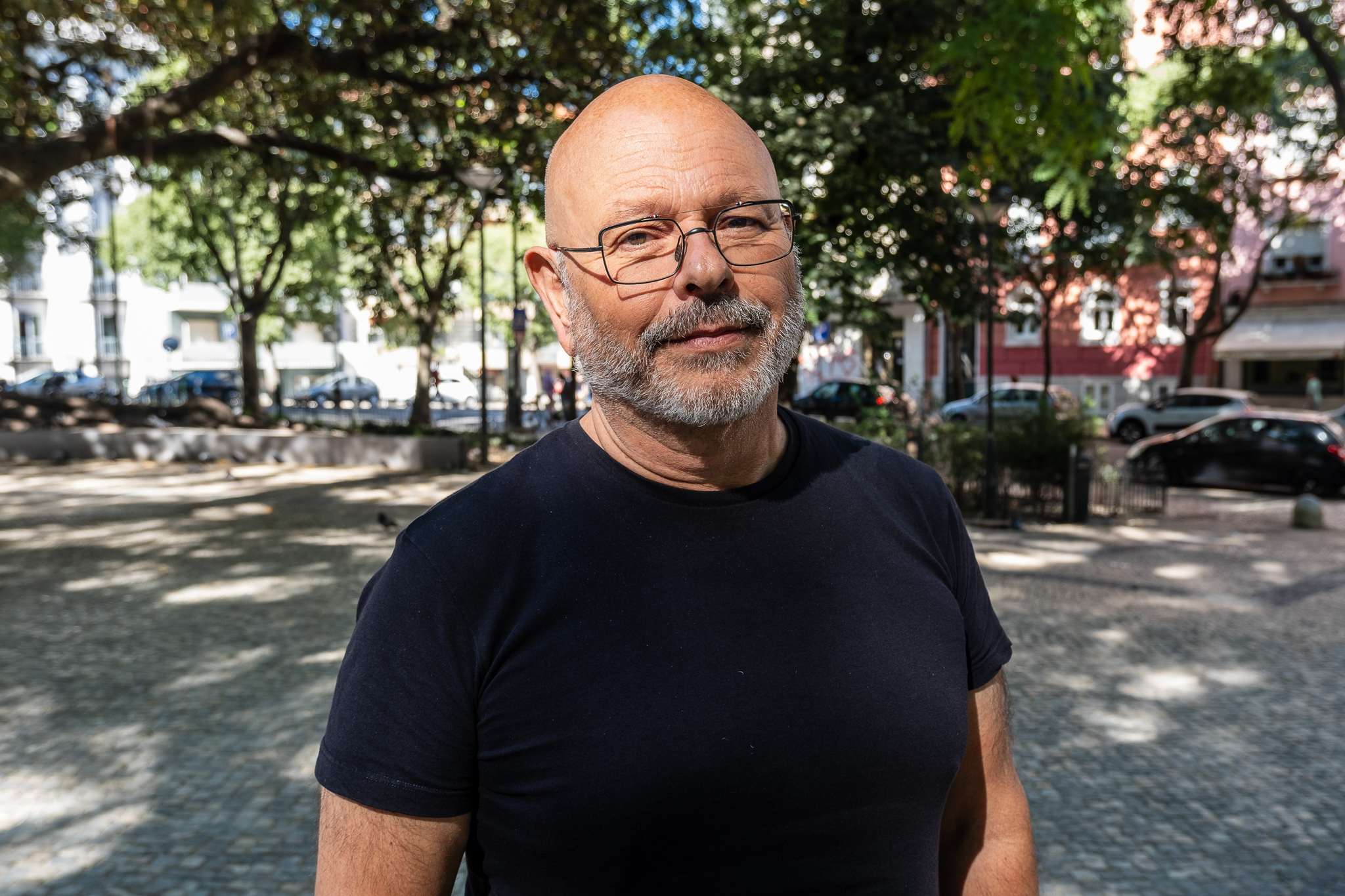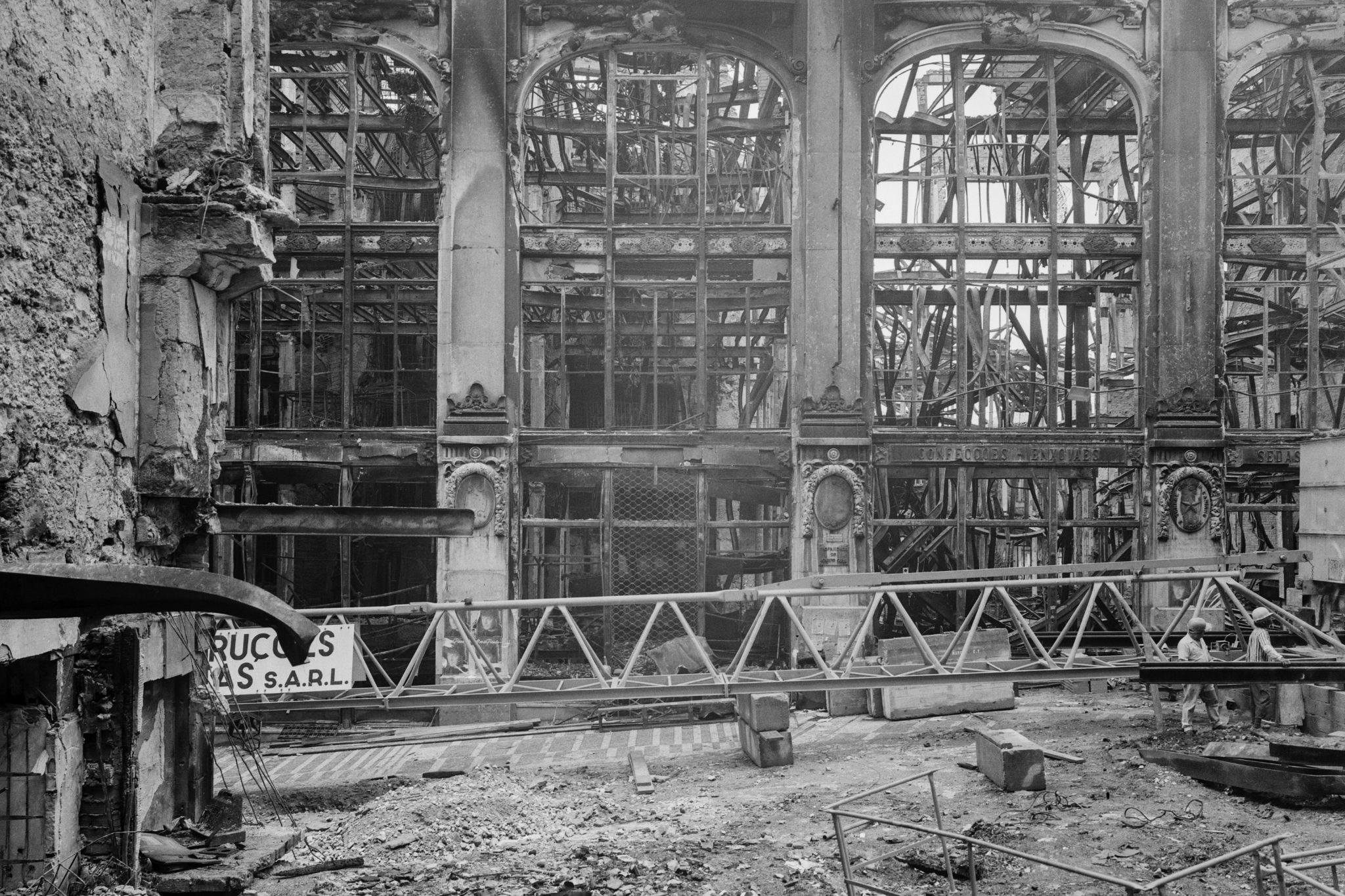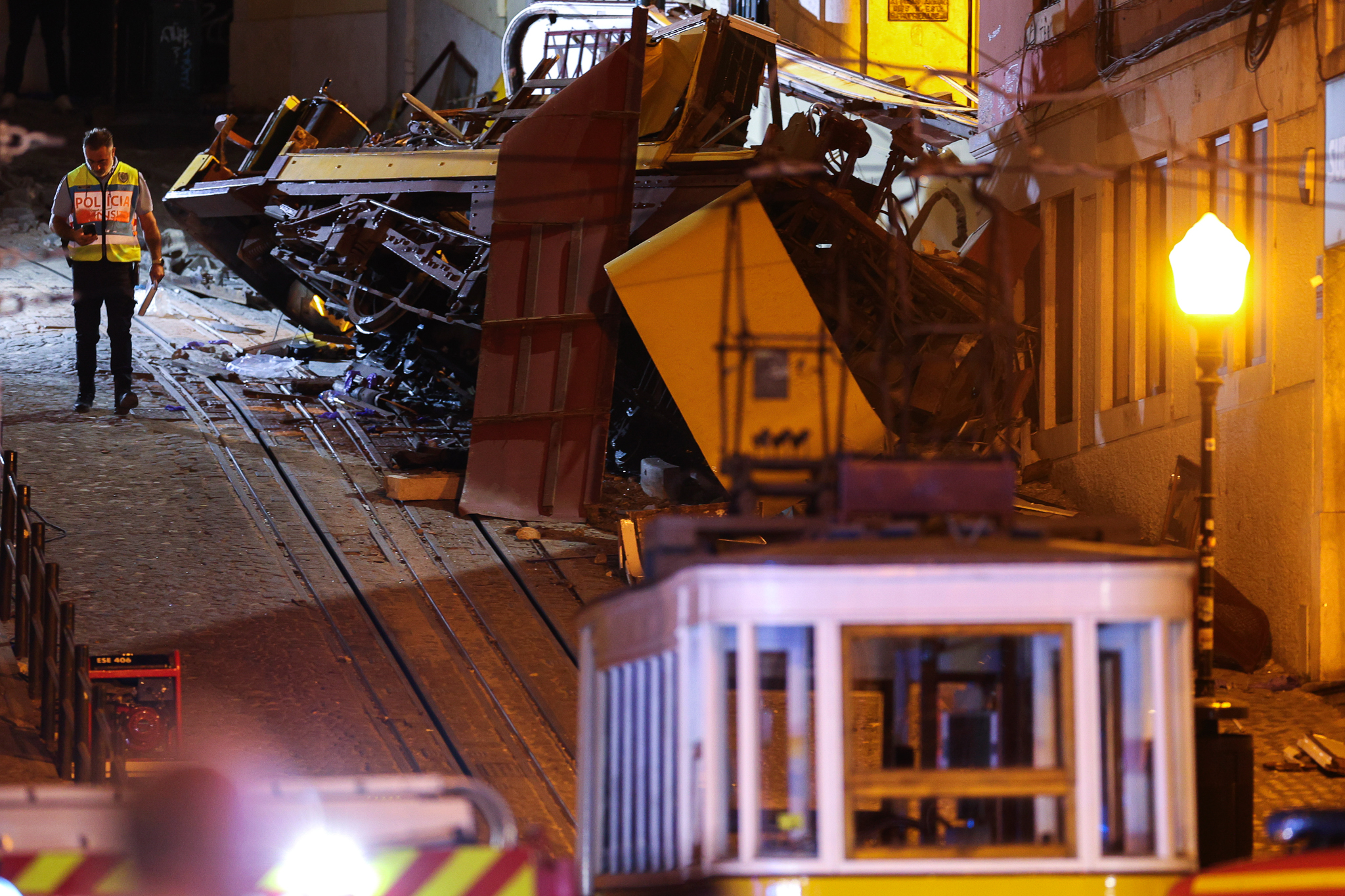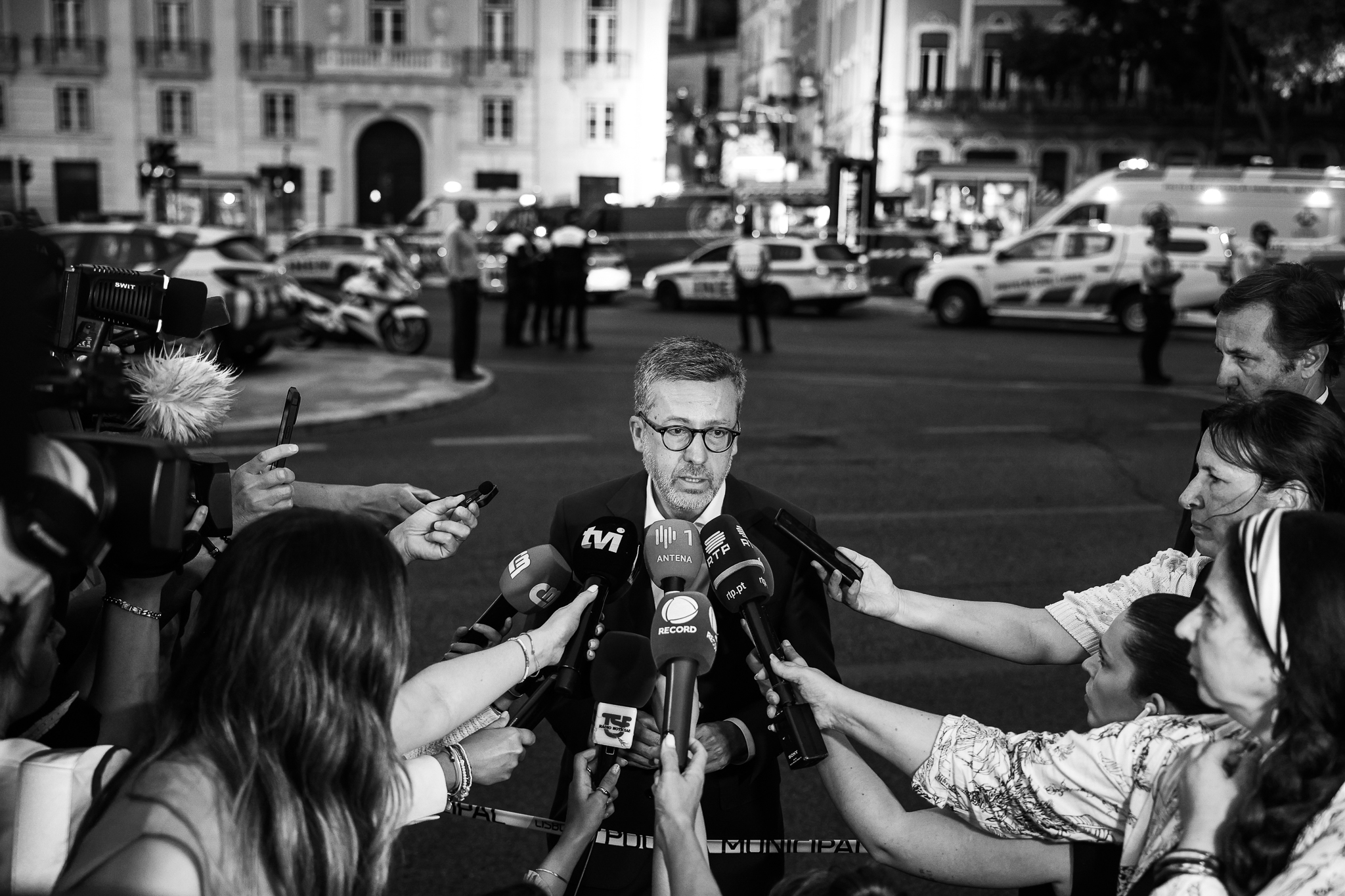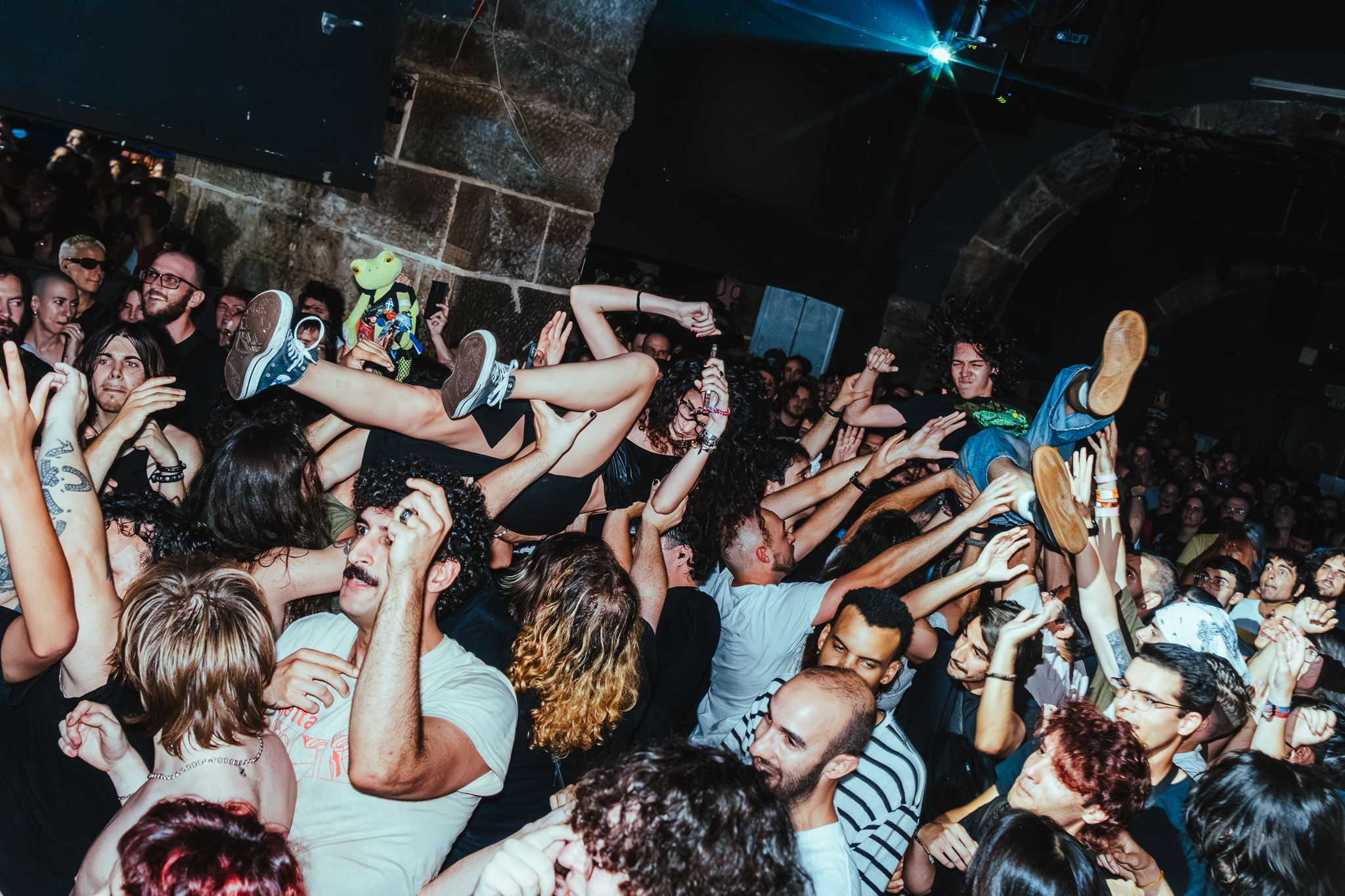The mayors of Setúbal, Alcácer do Sal and Grândola argue that the Sado river crossing should be more accessible and included in the Navegante pass. The petition launched by the Left Bloc has gathered more than 7,300 signatures. The government is available and attentive to the problem.
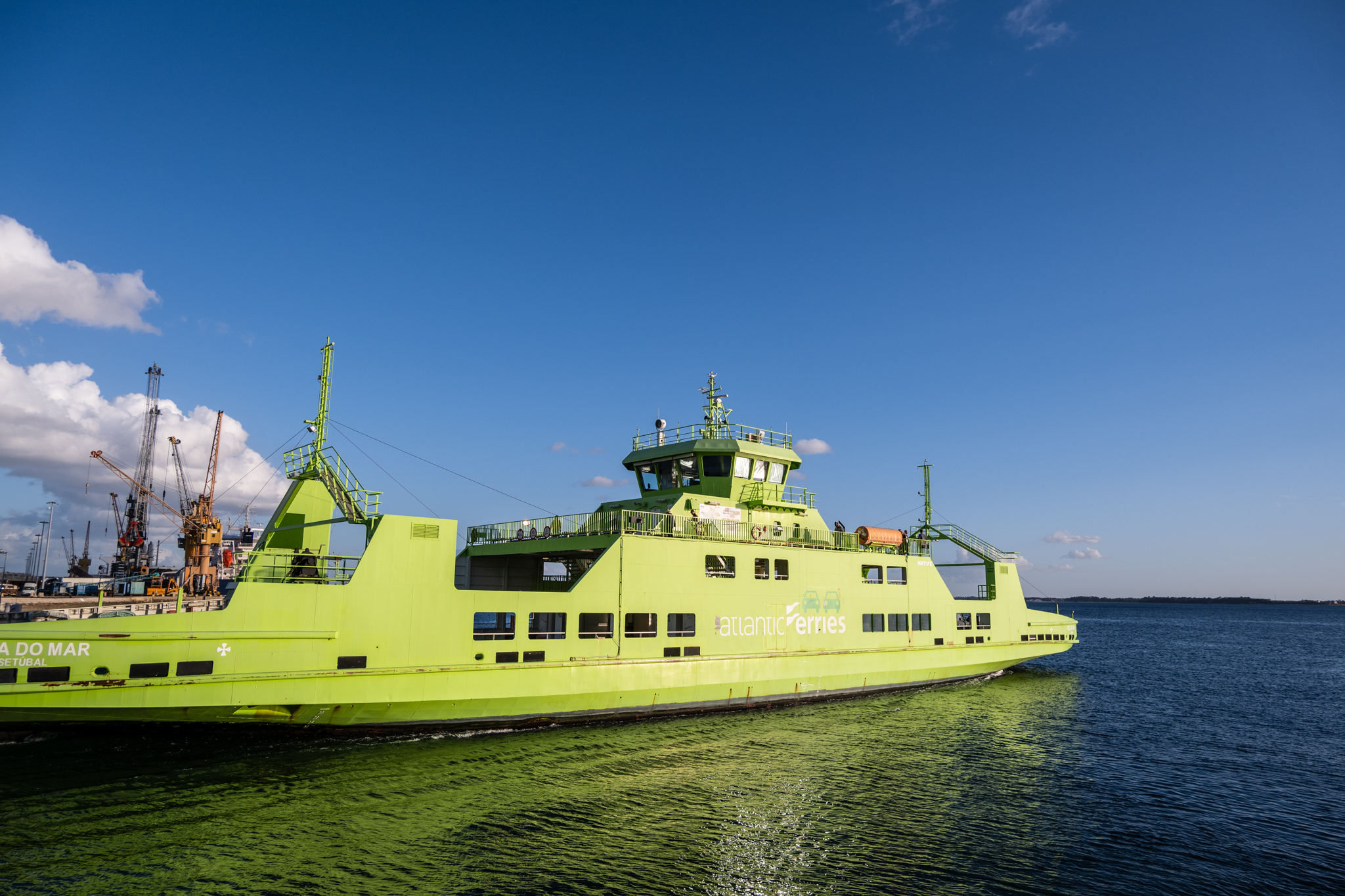
The Mayor of Setúbal, André Valente Martins, together with his counterparts from Alcácer do Sal and Grândola, argued last September that the government and the Lisbon Metropolitan Area (AML) should find solutions to make river access to Troia more accessible, including the possibility of associating the Navegante pass with the crossing.
At a joint press conference on September 12 with the mayors of Alcácer do Sal and Grândola, Vítor Proença (CDU) and António Figueira Mendes (CDU), respectively, André Valente Martins (CDU) defended the need for the two entities to intervene in a matter of national interest. "Since time immemorial, the River Sado has facilitated the connection between the Lisbon metropolitan area and the south of the country. Today, unfortunately, it is increasingly a barrier to mobility between the two banks, due to the high prices charged for river transportation"he said.
For the mayors, all of whom are members of the CDU, both the central government and the AML must assume their responsibilities to change the current situation and create the necessary conditions for the mobility of people and goods to the Troia peninsula"This will improve access for people from the Lisbon metropolitan area to the Litoral Alentejano region. One of the solutions, André Martins pointed out, involves "handing over the public transport service for the river crossing to public bodies with powers in this area, such as AML"because this service "must no longer be conditioned by a concession contract managed by the port administration".
The mayor also argued that the possibility of including this crossing in the Navegante pass, "making it possible to reduce costs for people who need to cross the two banks of the Sado every day".
"Essential for economic development, as well as for the social cohesion of territories"
In a joint communication held in September, the mayors of the municipalities that make up the Sado riverside arc revealed that they had decided to take a public stance on the problem of the river crossing between Setúbal and Troia, "after having analyzed this situation together over the last few months, along with various contacts". This crossing "is an essential link to economic development, as well as to the social cohesion of territories" of Setúbal, Alcácer do Sal and Grândola, and its relevance "must be associated, for example, with the function of the national roads that ensure road connections to the entire Alentejo coast, as well as the highway".
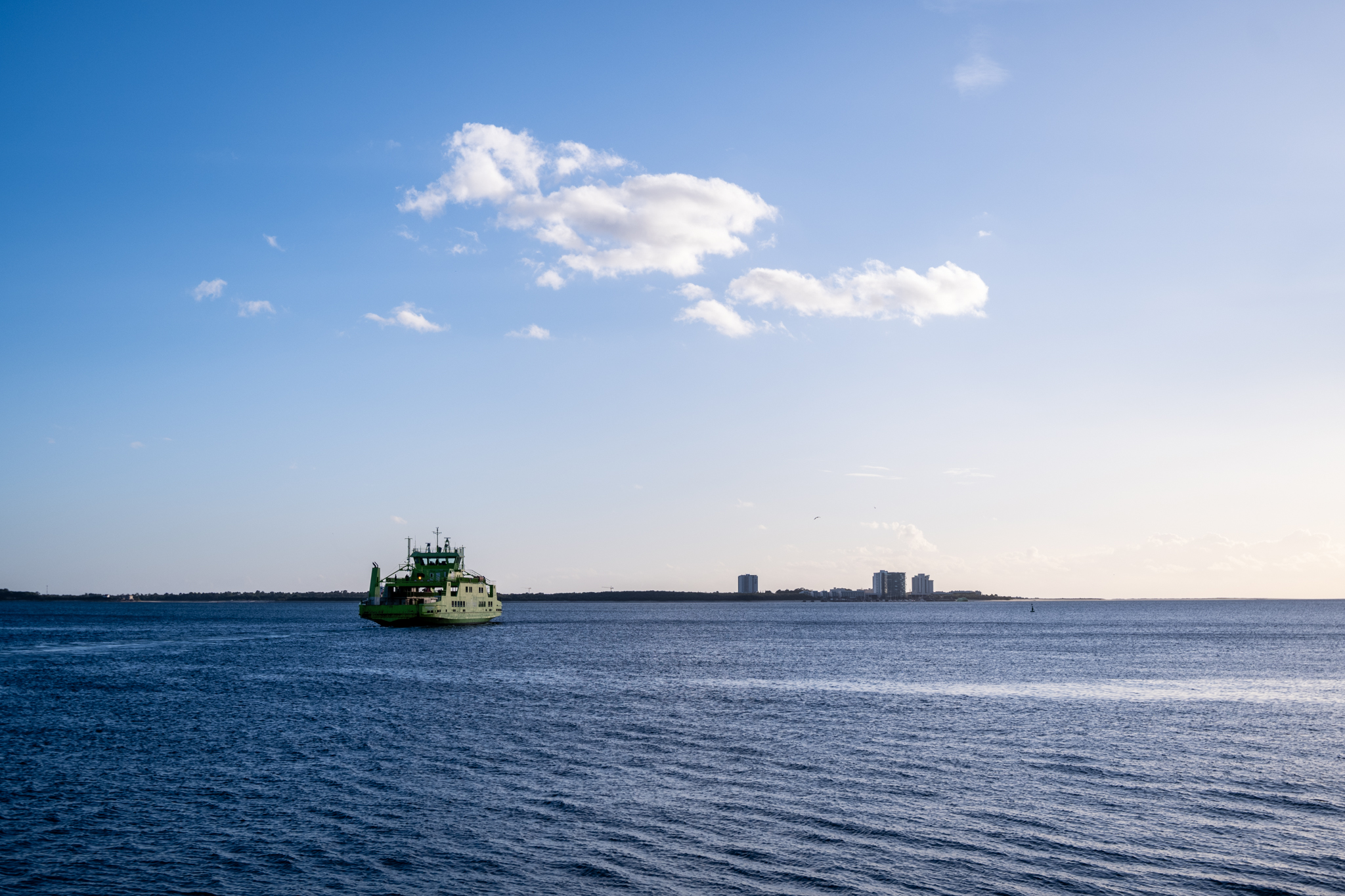
Public transportation of passengers and vehicles on the Sado is carried out by the private company Atlantic FerriesIt is possible to cross the river either in ferry (which carry vehicles, including bicycles) or catamarans (which only carry passengers, excluding bicycles). A trip by ferry takes about 25 minutes, while by catamaran it only takes 15 minutes. The frequency is hourly, every day of the week, except in the summer, when not only are there more timetables throughout the day, but the frequency of the catamarans is also higher. ferries every half hour during the day. A catamaran trip costs 8.80 euros from Setúbal to Troia, and is free from Setúbal.
In ferryThe cost of transporting a car is 19.60 euros, including the driver, plus 4.30 euros for each additional passenger. Taking a bicycle costs 10.90 euros (5.60 for the vehicle plus 5.30 euros for the rider); if it's a cargo bike or with a trailer, the price rises to 11.70 euros (including the rider). A 30-day pass costs 92.80 euros, with students living in Troia paying half this amount; the pass does not include the vehicle, so a person who wants to take a bicycle every day will have to bear this additional cost. The pass must be loaded onto an Atlantic Ferries card and cannot be loaded onto a Navegante card, for example.
The three mayors argue that the following must be found "solutions and paths that make the Sado, in terms of the mobility of people and goods, an accessible link and a clear alternative to other road options, both from an economic and environmental point of view". The fares charged for crossing the River Sado "may, in some circumstances, be higher than making the trip to that territory by highway, passing through Alcácer and then heading to Comporta".
With the current tariff, "anyone who wants to cross the Sado with their car on the ferry you will have to pay 19.60 euros, including the driver, plus 5.60 euros for the first passenger and 4.30 euros for each of the others"This amounts to 33.80 euros per trip for a car with four people, "more than a few trips to European destinations on low-cost airlines". If you travel by catamaran, which only carries passengers, the round trip costs 8.80 euros.
Cheaper by car
"Using a light gasoline car, the cost of the trip for four people is still slightly lower than if we use the boat, which, of course, keeps many potential users away from the crossing, who prefer to use their car with the convenience that is always associated with it and, of course, the consequent ecological footprint."lament the mayors of Setúbal, Alcácer do Sal and Grândola. This situation "driving away those who need to cross the river to work, to supply the people who live there, to support the activities that take place on that side or to go to the beach or for tourism" in Troy.
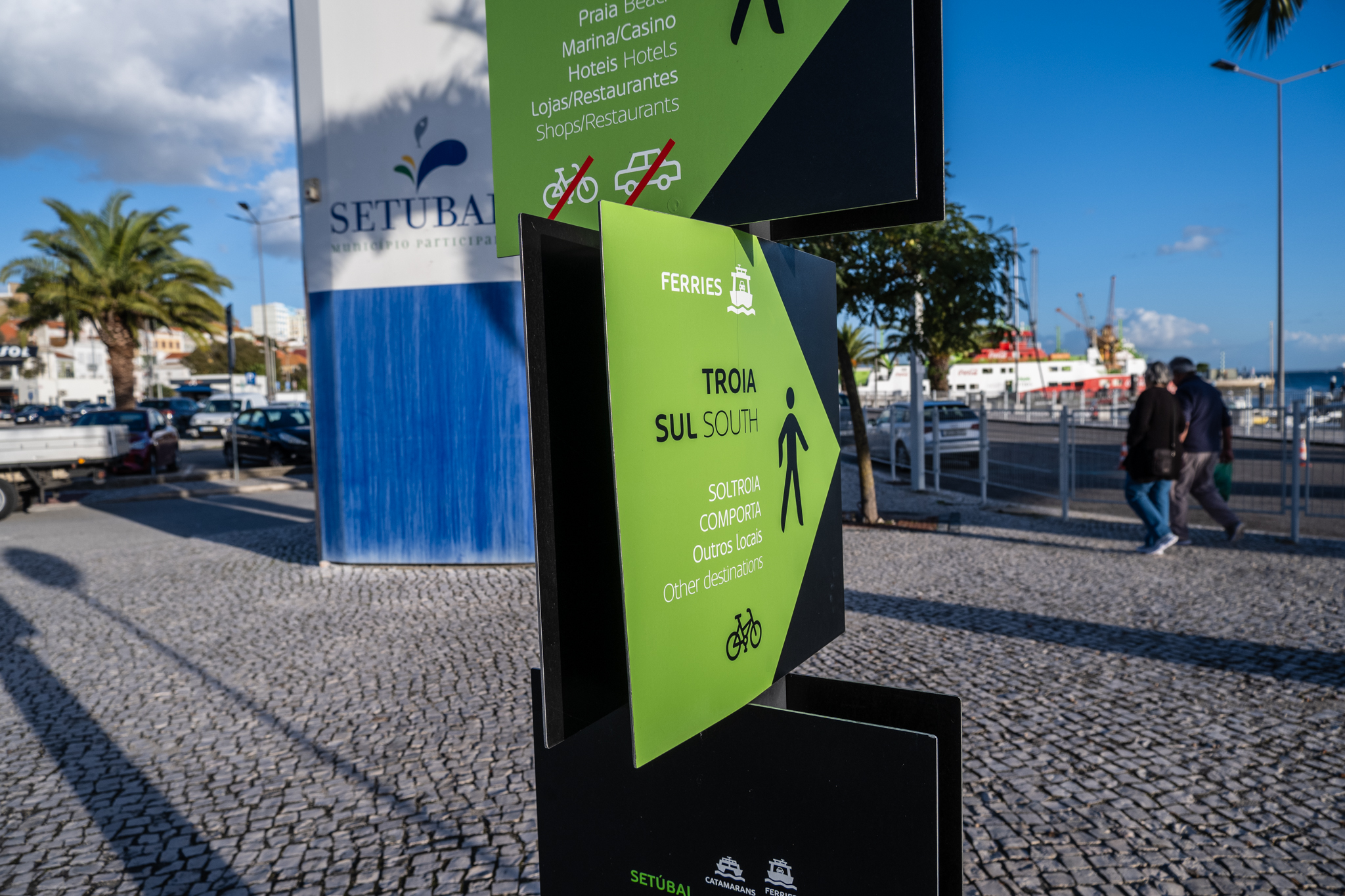
The mayors highlight the historical, economic, social and environmental importance of Troia for the region, since it is "a stopping point, passage and transition between two large territorial units, the Setúbal Peninsula, where almost a third of the population of the Lisbon Metropolitan Area lives, and the Alentejo". The Troia peninsula has a "key role" the relationship between the entire Lisbon metropolitan area and the Alentejo coast, "whether in the displacement of labor, or in access to tourist facilities and bathing areas, or even in the supply of various materials to that area". The relationship between the people of the Litoral Alentejano municipalities and Setúbal also "are historically very relevant"thousands of people continue to use health services based in Setúbal, as well as other types of services and administrative support.
The crossing of the Sado also provides access for a large number of people who work on both sides of the river. "it cannot, therefore, with the prices charged, continue to be an obstacle to the movement of these people". Given the scale of the problem that "result in restrictions on the movement of people and goods" In a vast area of the country, which includes the municipalities of AML and Litoral Alentejano, the mayors of Setúbal, Alcácer do Sal and Grândola believe that the government cannot be left out. "The state can no longer shirk its responsibility. On our side, we are fully available, in the context of negotiated solutions, to contribute to balanced solutions for the benefit of the population."
Government available
In July, during the Feira de Santiago in Setúbal, the Bloco de Esquerda had launched an public petition for the inclusion of the Sado crossing in Navegantewith three arguments to justify this change: in first place "the historical relationship between the population of Setúbal and a large part of the Setúbal Peninsula, who have frequented the beaches of Troia over the years, to which they had easy access"; in according to, "the unaffordable prices set by the river transport concessionaire for most people living in Setúbal, who are no longer able to enjoy Troia beach"; in third, "the flagrant inequality in the right of access to public transport for the people of Setúbal compared to what happens in the rest of the Lisbon Metropolitan Area, of which Setúbal is a part“.

A petition has over 7,300 signatures as of todaymaking it suitable for discussion in Parliament. Meanwhile, on October 30, the government announced that will appoint a working group to monitor the situation of the Sado river crossing. The decision was taken after a meeting of the mayors of Setúbal, Alcácer do Sal and Grândola with Minister João Galamba. The meeting took stock of the contacts made so far by the mayors and the Minister for Infrastructure in order to "to resolve the problem of high fares on the Sado crossing as soon as possible"said the Mayor of Setúbal in a press release.
In order to give "more dedicated attention to the problem and speeding up the solution" it was decided to set up a working group whose members, which should include representatives of the three municipalities and the Ministry of Infrastructure, will be appointed by João Galamba. "We will continue to work to solve this problem, which is in the interest of the entire AML region and the Litoral Alentejano", assured André Valente Martins at the end of the match.
This meeting on October 30 was the second between the mayors of Setúbal, Alcácer do Sal and Grândola with Minister João Galamba, following a meeting on October 17 in which the government had already expressed its willingness to help resolve the issue of the prices charged for the river transport service on the Sado between Setúbal and Troia.
There are already interregional complements on the Navegante pass
The Sado crossing at Navegante could be made available through an intercity complement, as is already the case with other transport services in the metropolitan area. Carris Metropolitana has lines that go out to the Alentejo Central and Oeste regions and which can be used with the normal Navegante pass for a supplement of 20 euros. Thus, a person living in Setúbal who has the 30 euro Navegante Municipal, for example, can pay an extra 20 euros/month to travel on Carris Metropolitana line 4906 to Vendas Novas, in the central Alentejo. This will only cost them 50 euros. If they wanted to combine their Navegante pass with the Troia crossing, they would have to spend 122.80 euros every month.
There is also a supplement of just 0.50 euros for anyone who has a Navegante pass and wants to travel regularly between the train stations of Carregado, in the Lisbon metropolitan area, and Azambuja, in the Lezíria do Tejo region. This supplement is only available to users of the Navegante Metropolitano pass; in other words, the total monthly cost is 40.50 euros for those who live in the municipality of Azambuja and work in the Lisbon metropolitan area.
| Interregional connection | Means of transport | Complement |
|---|---|---|
| Between amL and the Alentejo Litoral region | Carris Metropolitana interregional lines | 20 € + any Navegante pass |
| Between amL and the Western region | Carris Metropolitana interregional lines | 20 € + any Navegante pass |
| Between amL and Azambuja (Lezíria do Tejo region) | CP suburban train | 0,50 € + Navegante Metropolitano pass |
| Between amL and Troia (Alentejo Litoral region) | River crossing of the Sado by Atlantic Ferries | Not available (you need to buy a 92.80 € pass on a separate card from the Navegante card/pass) |

